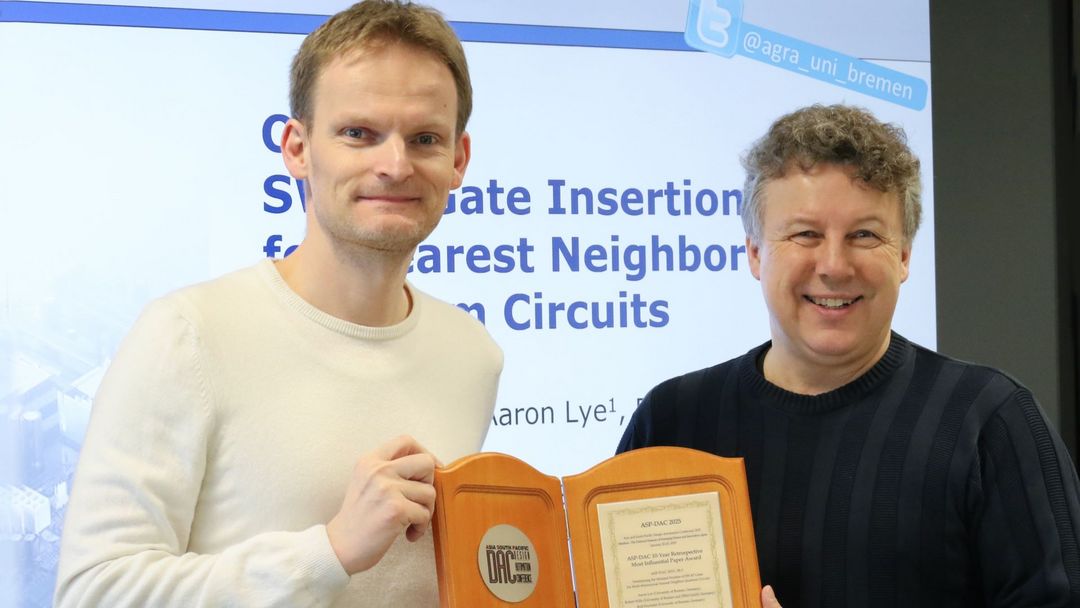A key component for the practical use of quantum computers is specialized software – particularly compilers that optimize quantum programs and translate them into a form executable by the respective hardware. In their 2014 paper, "Determining the Minimum Number of SWAP Gates for Multi-dimensional Nearest Neighbor Quantum Circuits," published at the Asia and South Pacific Design Automation Conference (ASP-DAC), Prof. Dr. Robert Wille – then a researcher at DFKI Bremen and now a professor at the Technical University of Munich (TUM) – Prof. Dr. Rolf Drechsler, head of DFKI's Cyber-Physical Systems research department, and Dr. Aaron Lye from the University of Bremen laid a fundamental foundation for this.
The work makes an important contribution to the efficient use of quantum computers by addressing a central technical challenge. A specially developed compiler optimizes quantum circuits, making algorithms more reliable and easier to execute – an important step toward practical application. With the "10-Year Retrospective Most Influential Paper Award" at ASP-DAC 2025, their pioneering research in this field has once again been recognized.
Prof. Wille and Prof. Drechsler previously received this award in 2022, along with Dr. Matthias Soeken, Dr. Nils Przigoda, and Christoph Hilken. Their paper, "Synthesis of Reversible Circuits with Minimal Lines for Large Functions", published at ASP-DAC 2012, presented a method for the automatic generation of reversible circuits – an essential building block for quantum programs. Ten years later, this work was honored with the 10-Year Retrospective Most Influential Paper Award at ASP-DAC 2022.
Today, as quantum computers move closer to practical application, the significance of this pioneering work is becoming increasingly clear. The continued recognition by the international scientific community underscores the high relevance and lasting impact of the research conducted at DFKI and the University of Bremen in quantum computing.

